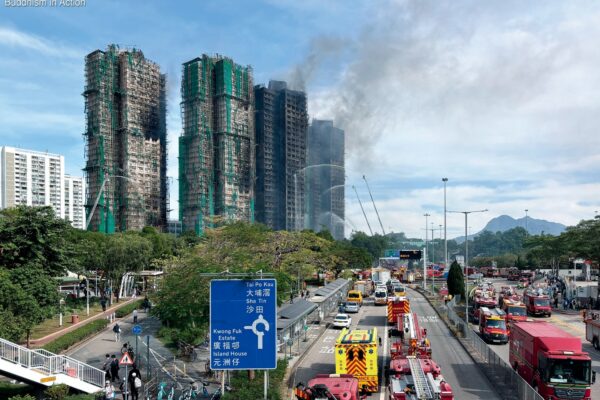By Li Wei-huang
Translated by George Chen
Photos by Chen Ji-xiong
A stem cell recipient from China meets her donor in Taiwan. She calls him her brother because the same blood now flows in their bodies.
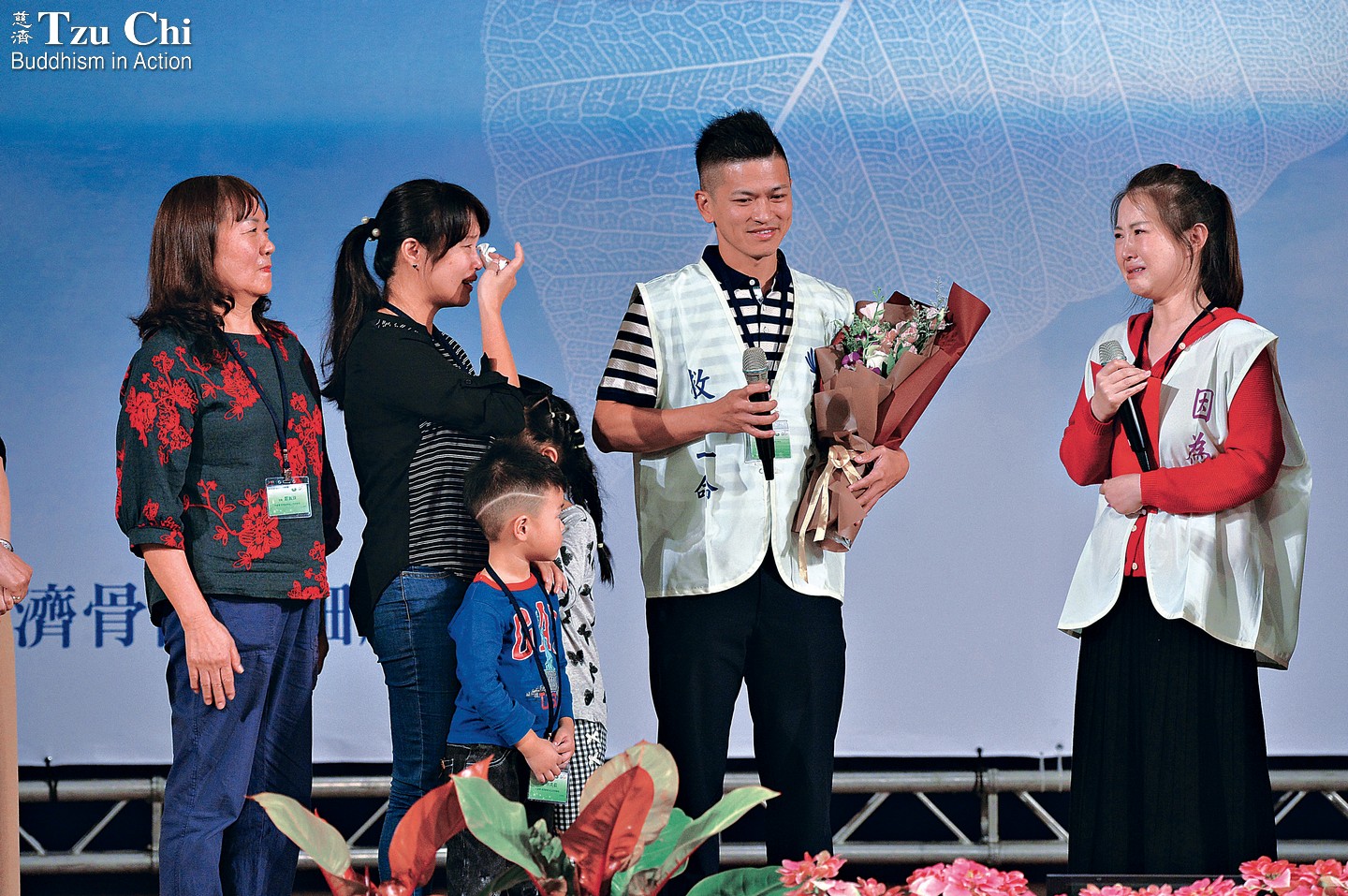
Zhao Hongyan (right) meets her donor, Lin Zhe-qian (second from right), and his family in a gathering for stem cell donors and recipients at Taichung Jing Si Hall in central Taiwan.
In August 2019, the mainland Chinese government suspended independent travel by tourists to Taiwan. Although that decision made traveling from China to Taiwan more difficult, it couldn’t deter Zhao Hongyan (趙鴻雁) from making her trip. She eventually overcame this and other challenges and traveled to Taiwan in October 2019 from her hometown in Dalian, Liaoning Province, in the north of China. On October 19, she met her “life savior,” a meeting for which she and her family had waited five long years.
Undeterred
Zhao arrived in Taiwan the day before a gathering of stem cell donors and recipients. The meeting had been organized by the Tzu Chi Stem Cell Center. To ensure that she would have the energy and strength to meet and thank her donor, she went to bed at eight the night before the meeting after taking a sleeping pill. The next morning, she washed her hair and took a shower before putting on makeup, hoping to present her best self to her “Taiwanese brother,” the donor whose blood now flows in her body.
The only thing she knew of her “brother” was that he was two years older than she was, though she secretly hoped that he weighed at least 100 kilograms (220 pounds). Because the amount of stem cells harvested depends on the weight of the recipient, Zhao hoped that her “brother” would be bigger so she could feel less guilty about the extraction she had received from him.
When the moment finally arrived for Zhao to meet her donor in the auditorium where the gathering was held, Zhao saw a tall, handsome man, Lin Zhe-qian (林哲謙), together with some of his family members, stand up from the audience. Zhao, who was already on stage, immediately knelt and prostrated herself in his direction three times. She explained that two of the prostrations were made on behalf of her parents who were unable to attend the gathering.
She had hoped her folks would have been able to accompany her, but she was the only person in her family that had been permitted to travel to Taiwan. Even so, her trip was only possible with the help of the China Marrow Donor Program and the Red Cross Society of China. She was very thankful for their help.
Zhao’s yearning to meet her donor had grown stronger and stronger after she regained her health following her stem cell transplant. In May 2019, she traveled to Xiamen in Fujian Province with her family during China’s May Day “Golden Week” holiday, thinking they could simply take a boat across the Taiwan Strait to Taiwan. They thought that once in Taiwan, they could track down Tzu Chi to obtain her donor’s address and then visit her donor in person to express their gratitude.
When they reached Xiamen, however, they were told that besides the permit they had already obtained, they needed another entry permit to visit Taiwan. Because that application process would take two to three weeks, they had no choice but to return to their hometown.
Later, Zhao contacted the Tzu Chi Stem Cell Center in Taiwan online and learned that a gathering of donors and recipients would be held at Tzu Chi’s Taichung Jing Si Hall in central Taiwan on October 19, 2019. When Zhao received this news, she approached China’s Taiwan Affairs Office and other relevant agencies and tearfully pleaded for a chance to visit Taiwan for the gathering.
“We empathize with your situation, but we just can’t let you go. It’s our national policy.” Though she received that answer over and over, she refused to give up. Finally, an exception was made for her, and she received permission to visit Taiwan on October 8, 2019. Her determination and persistence had finally earned her an opportunity to meet her donor.
Can’t afford to die
Zhao was turning 30 when she fell ill. She had been an exemplar of success before that—a degree from a good school, a stable career, and a loving family with a newborn baby.
She recalled that she had once read about the plight of children afflicted with leukemia when she was still a student. She felt for them so much she even signed up to be a donor with the China Marrow Donor Program and had a blood sample drawn. Sadly, before she could help others, she was diagnosed with acute lymphoblastic leukemia.
“No one in my family, going back three generations, has ever had such an illness.” Zhao said. “My paternal grandparents both lived past 85, and my maternal grandmother is still healthy at 92 years old. And I’m still young! Why did I get such an ailment? Why me?” She was disconsolate.
Before she fell ill, she was an energetic person who could work 14 hours a day without showing any sign of fatigue. She thought leukemia was a hereditary ailment, something that only happened in television dramas or in other families. Never in her worst nightmare had she imagined she would be struck with the illness.
As a single child, Zhao was very clear she would have to overcome her disease. “I can’t afford to die,” she remarked. “I must continue to live. If I, a precious only child to my doting parents, was defeated by the illness, I’m sure they would succumb to grief and fall ill too!”
Her whole family was unanimous in their decision to save her—even if it meant losing their entire fortune. Zhao’s mother, already over 60 at the time, said, “I don’t mind if she’s wheelchair bound, as long as my daughter is alive!” Zhao felt like crying when she heard that. She realized that her life was not just hers alone. She had to do all she could to stay alive no matter how hard she would have to fight.
Snatched from the jaws of death
Zhao’s son was only just over four months old and still unweaned when she fell sick. Even so, she had no choice but to leave him under the care of other family members. Her whole family banded together to fight the illness with her, and they supported her with a clear division of labor. Her husband, mother, and parents-in-law accompanied her to Beijing to seek medical treatment. They even rented a place to live there. While her mother prepared meals for her and her parents-in-law took over the care of her baby, her husband cared for her in the hospital. Her father stayed home to raise money for her treatment.
Since Zhao was an only child, she had no siblings for human leukocyte antigen (HLA) matching. Her parents were over 60 years old, and her child was too young, so they didn’t qualify as potential donors either. If Zhao was going for a stem cell transplant, her only hope would be to find a match in a bone marrow/stem cell registry. Fortunately, a match was found for her in the China Bone Marrow Program. However, that hope was short-lived. Two months later, the potential donor, after thinking long and hard, decided not to donate.
Zhao’s mother, devastated by the news of the donor’s refusal, was diagnosed with ovarian cancer shortly after. The cancer had metastasized to the cervix, stomach, and other areas. If there were ten stages of cancer development, the doctor diagnosed her mother’s cancer to be in stage nine.
Just as hope, disappointment, and despair were played on Zhao and her family like a cruel prank, a piece of good news came from the Tzu Chi bone marrow registry in Taiwan: A match with a high degree of HLA compatibility had been found in the registry for Zhao!
The whole family, after being plunged into despair, saw hope again. They were afraid that they would be disappointed again, but several blood disease patients reassured them by saying, “If the match is found in Taiwan’s bone marrow database, you can rest assured!” It turned out that many blood disease patients in China had received stem cells from donors registered with the Tzu Chi Stem Cell Center in Taiwan. They all affirmed and had great confidence in the compassion of Taiwanese people.
On July 9, 2014, Zhao lay in Beijing Daopei Hospital, watching the stem cells from a stranger in Taiwan being transfused, drop by drop, into her body. One month later, her mother underwent surgery in Peking Union Medical College Hospital. During that period, the whole family was under tremendous stress. They were all spread thin caring for Zhao and her mother, both with life threatening ailments.
But after a storm comes a calm. That was the case here, and happily both mother and daughter survived.
Zhao on an outing with her family after she regained her health. Diagnosed with leukemia in November 2013, Zhao received a stem cell transplant in July 2014. The transplant was successful and Zhao recovered from the illness. COURTESY OF ZHAO HONGYAN
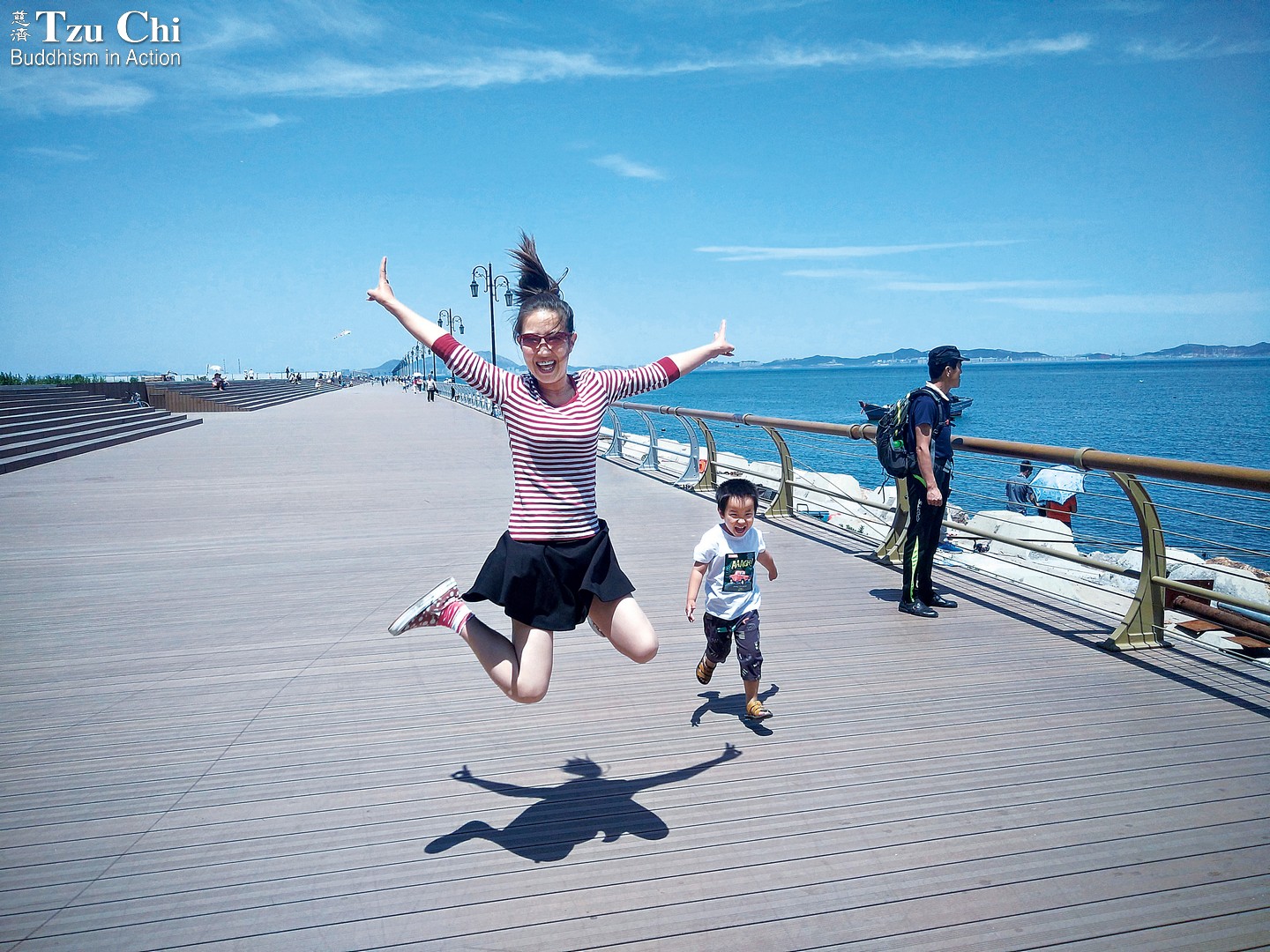
A costly illness
The entire treatment for Zhao was very costly. She clearly remembered consulting with the doctor after the diagnosis. The doctor told her that her ailment would be treated first with chemotherapy, after which they’d try to find a matching donor for a stem cell transplant. The entire course of treatment would require a huge sum of money. “At least one million renminbi [US$141,617],” said the doctor, “and there is no ceiling to the final cost.” He explained that the entire expenditure would depend on how well she responded to the treatment.
Zhao was a high school science teacher. When news spread that she was ill, her colleagues and students started a fundraiser for her at school to help cover her medical expenses. They raised more than 330,000 renminbi (US$47,160) within less than 40 hours.
A retired teacher sent 1,000 renminbi (US$140); a student donated 2,000 renminbi which she had painstakingly saved from her allowance; a colleague who had just returned to work after surgery for cancer donated 500 renminbi; and a young teacher donated one month of his salary. Everyone hoped that Zhao would recover soon and return to school to teach.
Zhao’s father sold a house, but the money was still insufficient. “I have six aunts and four uncles. They all chipped in to help too,” Zhao remarked. Every relative gave all they could to help her conquer the disease.
Zhao remembered a popular Chinese movie titled Dying to Survive. It explored the issue of the expensive treatment costs for leukemia patients in China. It was even said that leukemia was an ailment for the rich. Many patients’ families had to sell everything they had to pay the medical bills, but even so, there was no guarantee the patients would recover. Many ultimately lost their loved ones.
Zhao and her family spent a total of 1300,000 renminbi (US$184,290) in the end. That money included their rent and living expenses for the two years they stayed in Beijing for Zhao’s treatment.
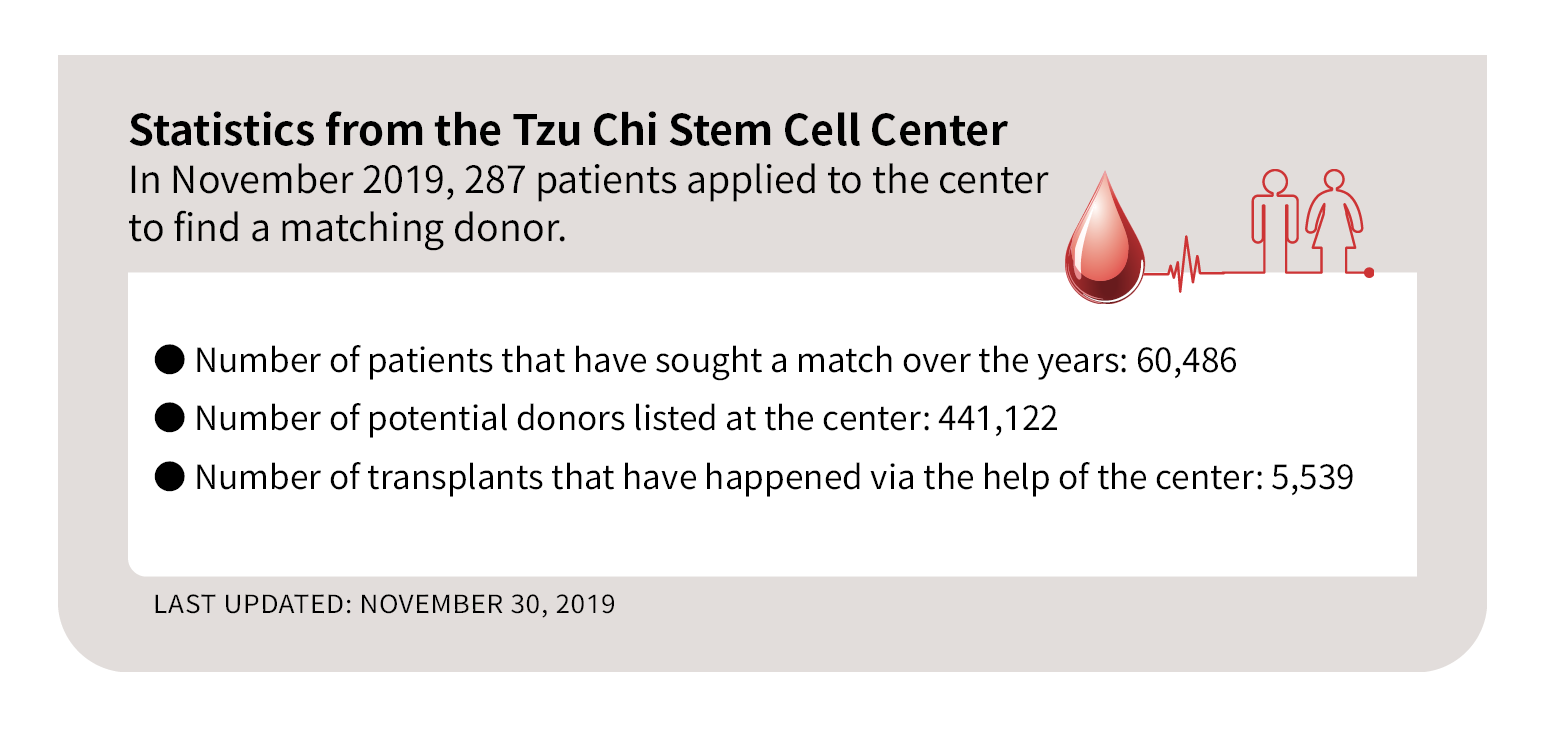
Being alive is all that matters
Zhao, who was naturally cheerful and optimistic, was an entirely different person when she first started receiving treatment. She rarely spoke, and insisted that her mother not speak to anyone either. “There were four patients in my ward,” Zhao recalled. “When someone vacated their bed, or when a new patient moved into the ward, I would feel very stressed.” This was because she felt she might end up like any of her fellow patients.
“What’s your type of leukemia?” she would ask a fellow patient. “How many chemo sessions have you completed? Have you found a donor? Have you received a transplant?” Zhao’s anxiety was so obvious that even her attending doctor became concerned about her physical and mental state. And yet, every time she underwent a lumbar puncture or a bone marrow aspiration test, she never showed any sign of being in pain nor did she ever shed a tear. “I just felt that my entire body was numb. All I could think of was whether I would survive.”
Although Zhao did not know why she became ill, she had not slept well for almost five months before the onset of the illness. Her son weighed nearly nine pounds at birth. He had to be fed every hour during the day and every two hours at night, which greatly interrupted her sleep. A lack of rest drained her vitality, and she became so down, it was as if she were suffering from postpartum depression. “My mood couldn’t have been lower,” she commented. “Some time after that, I came down with the illness.”
Zhao admitted that because her life had been smooth sailing before she fell ill, she had been the kind who only allowed herself to win and not to fail: “I believed that as long as one worked hard, one would definitely make it in life.” After her close brush with death though, she began to think differently. “Now I feel that as long as one is alive, there is nothing to complain about life.”
After her successful transplant, she was so grateful to be alive she would easily tear up. “Even being able to step out of the hospital wearing a mask and walk around a supermarket was enough to reduce me to tears of gratitude.” She had missed places full of people, life, and vitality when she was ill. “Being alive is just so wonderful!” she exclaimed.
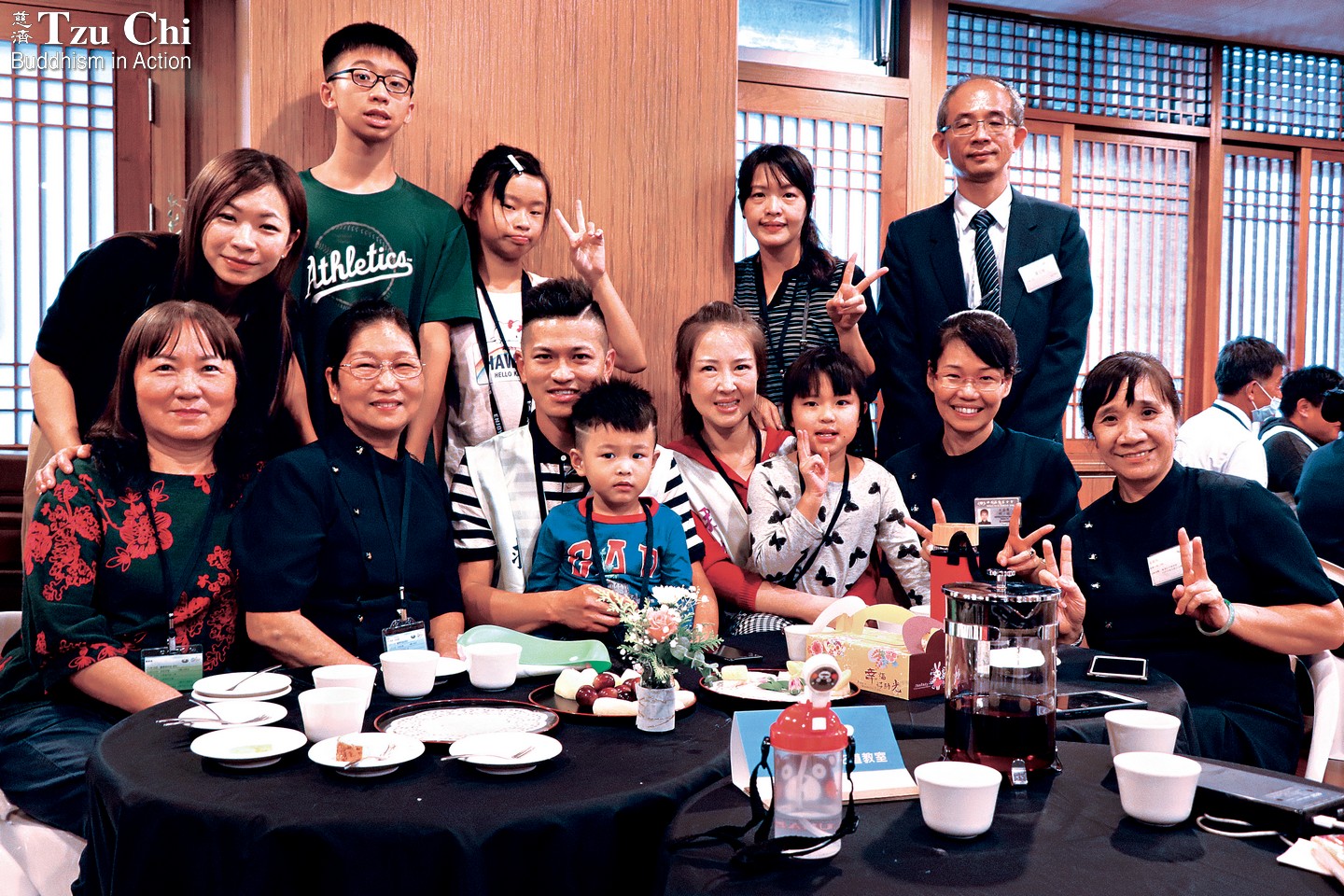
Donor Lin Zhe-qian (front row, third from left) said that his whole family was very happy when they learned about the gathering for donors and recipients. They decided they would all attend to meet the recipient. Sitting beside him is Zhao Hongyan, the recipient, who was delighted to have a new extended family in Taiwan. LIAO WEI-CHEN
Zhao used to value success, excellence, and achievement, but they are no longer her priorities in life. She now defines her happiness as “being able to accompany my parents as they age and my son as he grows up.” Compared with her fellow patients who had passed on, Zhao knew she had already been given a lot.
“The world has kissed my Soul with its pain, asking for its return in songs.” Zhao used this quote from Stray Birds by the famous Indian poet Rabindranath Tagore to convey her feelings after gaining a new lease on life.
Ever since Zhao arrived at the airport in Taiwan, she had been accompanied by Tzu Chi volunteers wherever she went, be it Taichung or Taipei, until her departure. During this trip, she fulfilled her wish of meeting her “Taiwanese brother,” someone who now shares the same blood as she, and she returned home with an abundance of love.
She has already mapped out a plan: When China again allows independent travel by tourists to Taiwan, she will definitely take her family in Dalian for another visit there.
Gratitude Tinged With a Trace of Regret
By Zhao Hongyan
I’ve already shared with my family the videos and photos of my meeting with my stem cell donor. They were all in tears, extremely touched by the scenes they saw. They repeatedly expressed their regret for being unable to attend the gathering, especially as the whole family of my “brother” came, but I alone had to represent my family.
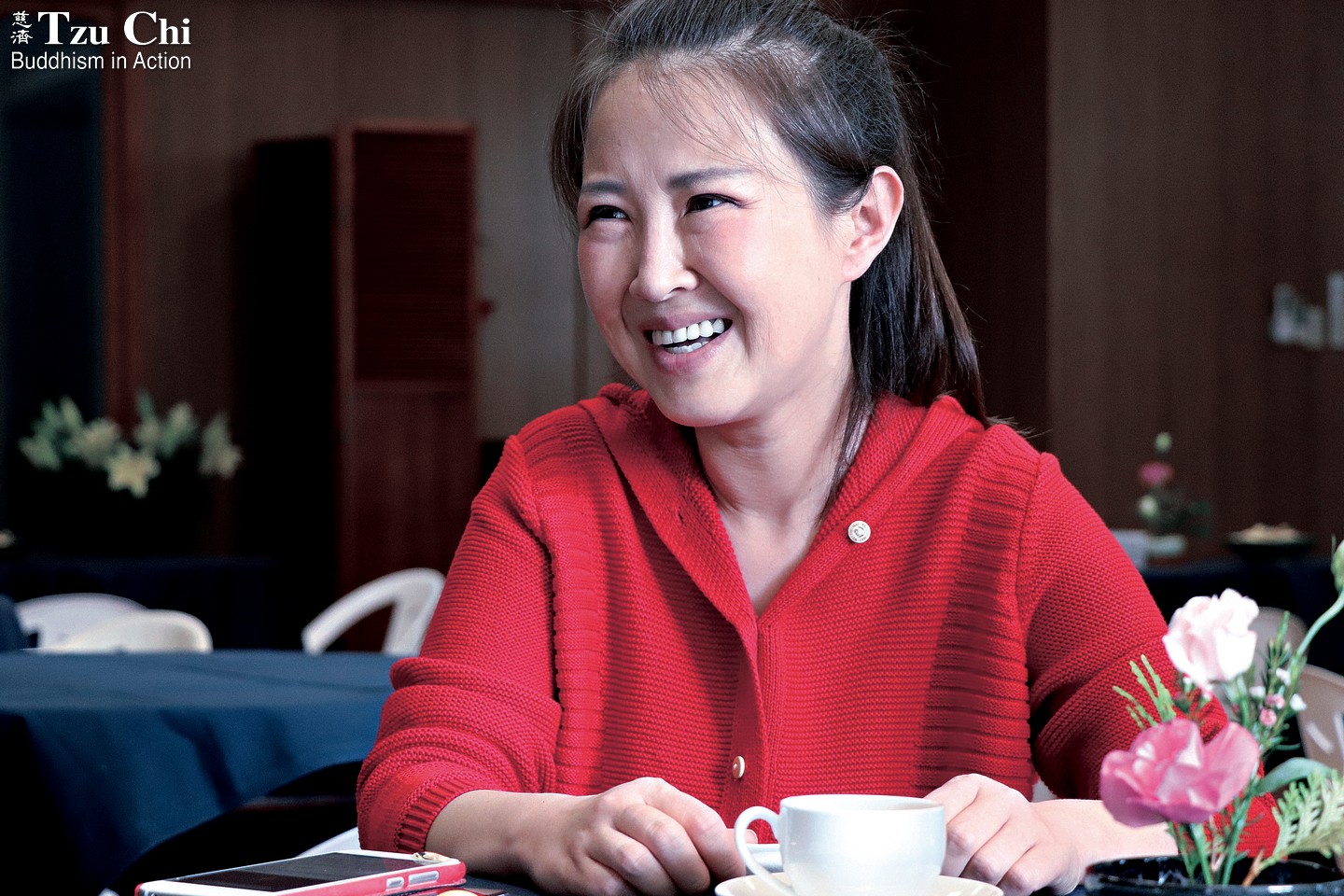
This thanksgiving trip was wrought with challenges. Besides the distance, it was difficult to make it from China to Taiwan. When my husband picked me up at the Fuzhou airport on October 21, 2019, I broke down in tears as soon as I saw him. I was so emotionally charged from all that I had experienced in Taiwan, I went on and on about my trip till three the next morning. We planned to do some sightseeing in other cities before returning to Dalian, but I knew I would be too distracted to enjoy the scenery. Whenever I thought about my brother and what had happened during my trip, I could not remain calm. I even dreamed of it at night.
I Was the Lucky One
By Lin Shu-huai
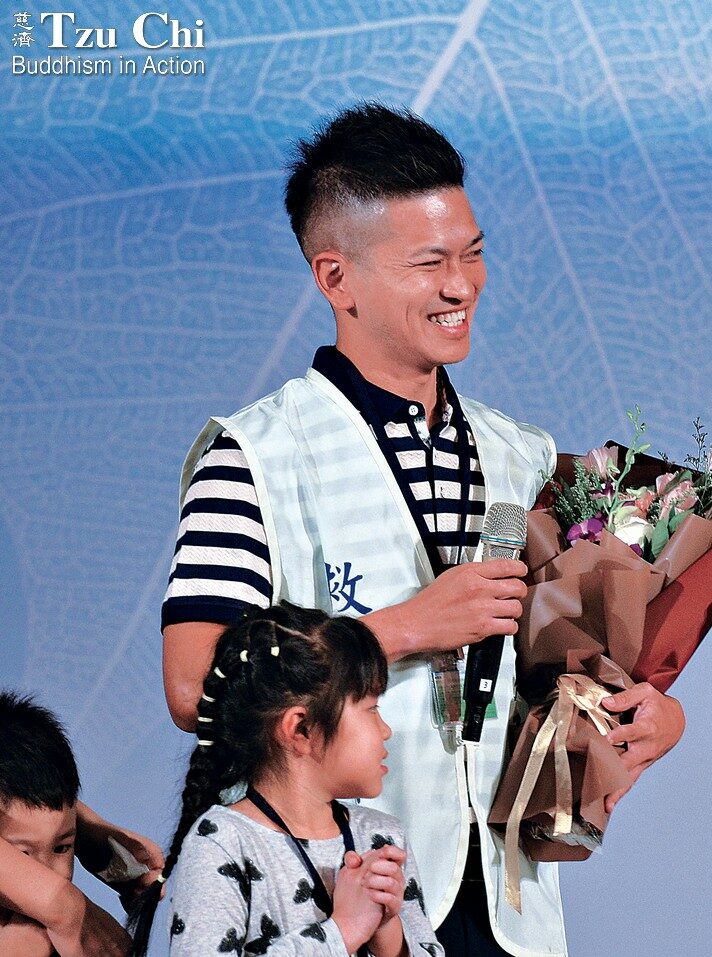
“Seeing her in good health, living happily, and even able to visit Taiwan, I feel relieved,” said Lin Zhe-qian, Zhao’s donor. “It’s fate that I was able to help her. I hope she will take good care of herself, live a full life, face her future with courage, and cherish her time with her child and family.” The donor gave Zhao his best wishes.
In November 2008, 25-year-old Lin and his girlfriend signed up to be stem cell donors. They each had a blood sample drawn and registered with the Tzu Chi Stem Cell Center. Only 10 cc of blood was extracted, which was insignificant compared to the blood he donated each time. As the years went by, his girlfriend became his wife, and he gradually forgot about his participation.
It wasn’t until June 2014 that he received a phone call from Lin Xiang-que (林香雀), a volunteer for the Tzu Chi Stem Cell Center. “You’re a match for a stem cell donation,” the volunteer told Lin on the phone. “The patient’s condition is very bad. She really needs a transplant.” Lin thought that if he could save someone, why not? Therefore, he immediately ran through all donation protocols, and completed the donation in July 2014. To this day, the donation has had no effect on his health.
As a result of Lin’s donation, his mother got to know Tzu Chi better. She went on to undergo training and become a certified Tzu Chi volunteer. Her joy was beyond description when she met Zhao in the gathering for donors and recipients. Zhao endearingly called her “Mother, Mother” repeatedly (since Zhao now deems her donor as her brother). Mrs. Lin said she was most grateful to her son’s mother-in-law because she was the one who encouraged her son to register for stem cell donation back in 2008. If she hadn’t done that, the donation wouldn’t have happened and her son wouldn’t have been able to save Zhao’s life.
Donor Lin believes in showing empathy to people in need of help, an empathy that was borne from his own experience. He recalled that when his father was lying unconscious and critically ill in the hospital, he rushed to his bedside, only to be told by the doctor “there is nothing more we can do.” At that moment, he was so despondent he almost got down on his knees to plead for his father’s life. That experience taught him that when people are faced with loved ones on the brink of death, they are the most helpless and most in need of others to provide them with strength and hope. Therefore, he counted himself very blessed and fortunate for being able to give others help and hope.

